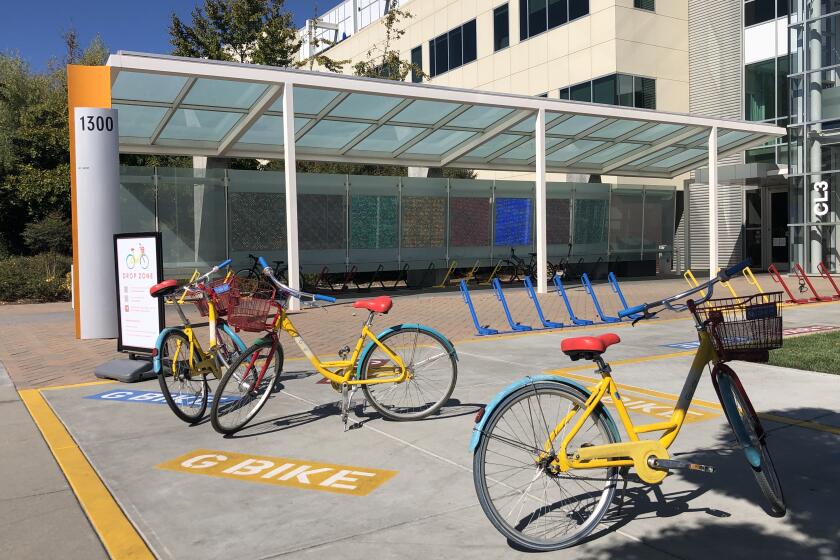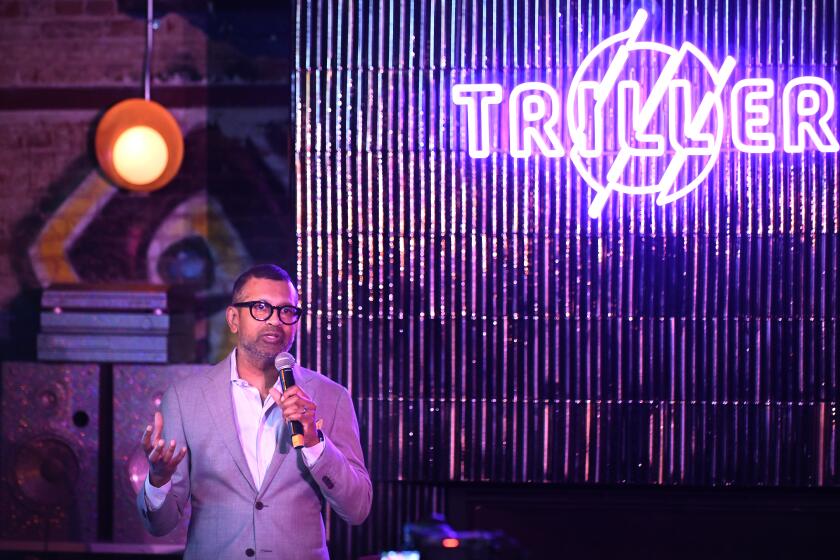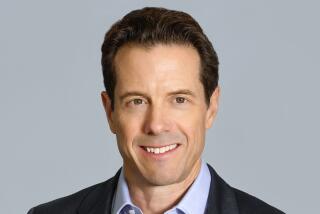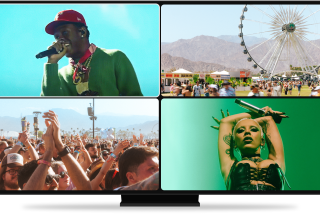YouTube CEO Susan Wojcicki steps down during a tough moment for tech
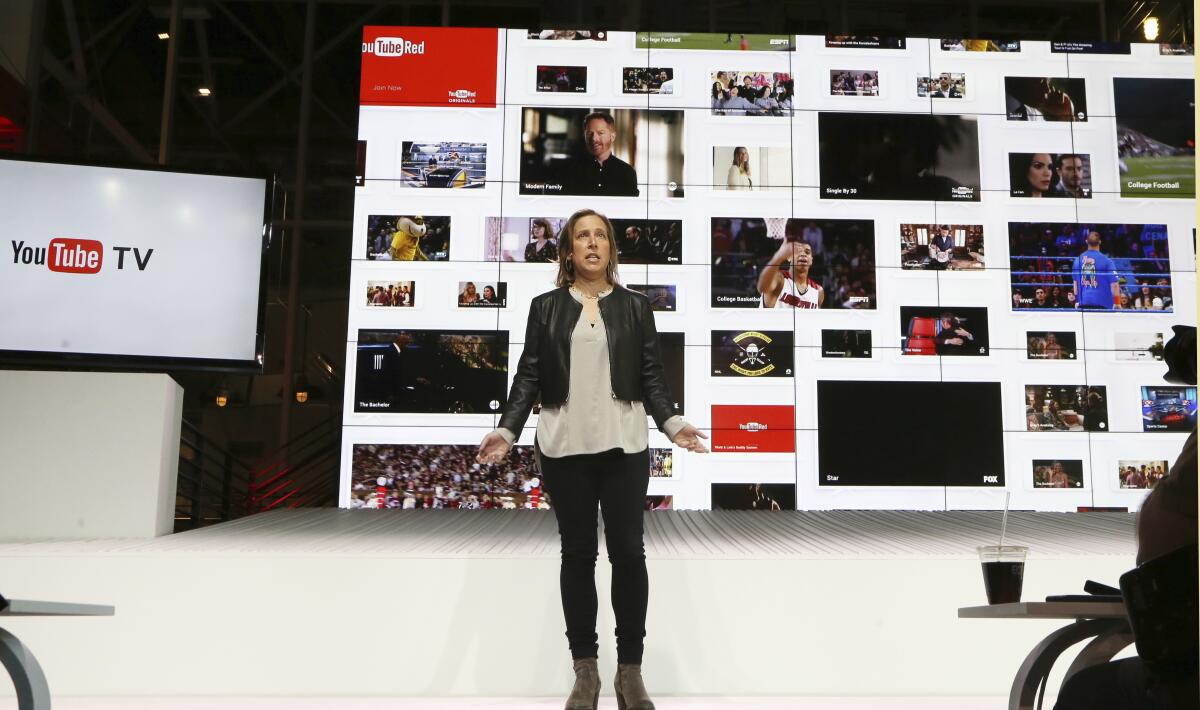
- Share via
YouTube Chief Executive Susan Wojcicki is stepping down after a long tenure leading the Google-owned online video giant, the company said Thursday.
“After nearly 25 years here, I’ve decided to step back from my role as the head of YouTube and start a new chapter focused on my family, health, and personal projects I’m passionate about,” Wojcicki wrote in a letter published online and sent to employees.
Neal Mohan, currently YouTube’s chief product officer, will be the new head of YouTube, Wojcicki said.
The change is effective immediately, the company said.
YouTube representatives declined to elaborate on what prompted Wojcicki’s departure, how long it’s been brewing or what Wojcicki’s continued involvement with the company will be.
Wojcicki, one of the tech industry’s most prominent female executives, was CEO during YouTube’s dramatic transition from an amateur video uploading site to a massive media and advertising powerhouse. Today, YouTube has more than 2 billion monthly users, with 1 billion hours of video watched every day by people around the world, according to the company.
“She saw the potential for YouTube to be more than just a video platform but a place where social networks, content creation and digital ads could come together,” said Ray Wang, principal analyst at Palo Alto-based Constellation Research.
But Wojcicki’s departure also comes at a moment of truth for both Google — which laid off 12,000 people last month, including some at YouTube — and the wider tech ecosystem, which is floundering through a wave of layoffs and cost-cutting measures as it comes down from a pandemic high and navigates a tough macroeconomic landscape.
And while YouTube remains a leading video platform, it’s facing robust competition from digital media companies including TikTok and Twitch, which court a youthful and enthusiastic online audience and base of creators.
“As viewing becomes more targeted and fragmented, you will see platforms like Discord or Twitch continue to chip at YouTube revenues,” Wang said.
As tech giants lay off scores of workers amid a sector-wide downturn, employees who once considered the Silicon Valley companies a safe long-term bet are reconsidering their allegiances.
In her farewell note, Wojcicki recounted a career that began a quarter-century ago when she joined up with Larry Page and Sergey Brin, two Stanford graduate students who were building Google. Wojcicki was instrumental in helping the firm in its early days, renting out her garage to the founders for $1,700 a month. She later joined as its 16th employee.
In 2006, the company acquired YouTube for $1.65 billion, and in 2014, Wojcicki — then an ad executive at Google — became chief executive of the video platform.
“Over the years, I’ve worn many hats and done so many things,” Wojcicki said in her letter: “Managed marketing, co-created Google Image Search, led Google’s first Video and Book search, as well as early parts of AdSense’s creation, worked on the YouTube and DoubleClick acquisitions, served as [senior vice president] of Ads, and for the last nine years, the CEO of YouTube.”
During Wojcicki’s tenure, YouTube improved its fraught early relations with media companies who viewed the site as a competitor that profited off unauthorized clips of shows, becoming a partner that helped studios promote their films and TV shows.
However, YouTube’s own efforts to become a subscription streaming powerhouse had mixed results.
To better compete against streaming companies such as Hulu, YouTube tried to expand its own subscription video business with premium scripted and unscripted shows. In June 2019, Google opened two large soundstages inside the historic Spruce Goose hangar complex for its L.A.-based original productions. But the company’s efforts to produce original content were later scaled back significantly.
Meanwhile, YouTube — which features a seemingly infinite well of amateur posts, cooking classes, music videos and movie trailers — has increasingly banked on the popularity of online influencers.
The platform grew a community of influencers and video creators by giving them financial incentives and resources to post more content. Those efforts helped make some videos slicker and more elaborate while also meeting the appetites of content-hungry viewers.
Last fall, YouTube launched programs meant to make it more lucrative to be a YouTuber — especially on Shorts, the company’s answer to short-form video titan TikTok. Wojcicki nodded to that ecosystem in her farewell letter, thanking her colleagues for fueling “the largest creative economy the world has ever seen” and helping “millions of creators and artists to reach new audiences.”
As YouTube increased the premium content in its library, it also boosted its ad revenue. Last year, YouTube generated $29.2 billion in advertising, representing 13% of its parent, Google’s, advertising revenue.
Disney’s recent round of layoffs are a symptom of a larger trend: a downturn in the entertainment industry, especially around streaming. What does it all mean for California’s economy?
But as YouTube’s ambitions grew, the company also faced significant challenges and controversies. In 2017, some brands said they were pulling their advertisements from the platform amid concerns that ads were being placed near hate speech or inappropriate content.
To address that issue, YouTube changed the threshold for creators to qualify for ad revenue and increased its content moderation efforts. Even still, the company continues to field criticism about the content it hosts and how its algorithm pushes viewers toward certain topics or themes, including extremist content and conspiracy theories.
Triller, the Century City company, plans to go public later this year even as it faces lawsuits over unpaid bills and breaches of contract.
Wojcicki credited Mohan with setting up “a top-notch product” and helping to launch the company’s YouTube TV, YouTube Music and Premium and Shorts products.
“In the short term, I plan to support [him] and help with the transition,” Wojcicki continued. “In the longer term, I’ve agreed with [Google Chief Executive Sundar Pichai] to take on an advisory role across Google and [Google’s parent company,] Alphabet.”
More to Read
Inside the business of entertainment
The Wide Shot brings you news, analysis and insights on everything from streaming wars to production — and what it all means for the future.
You may occasionally receive promotional content from the Los Angeles Times.
